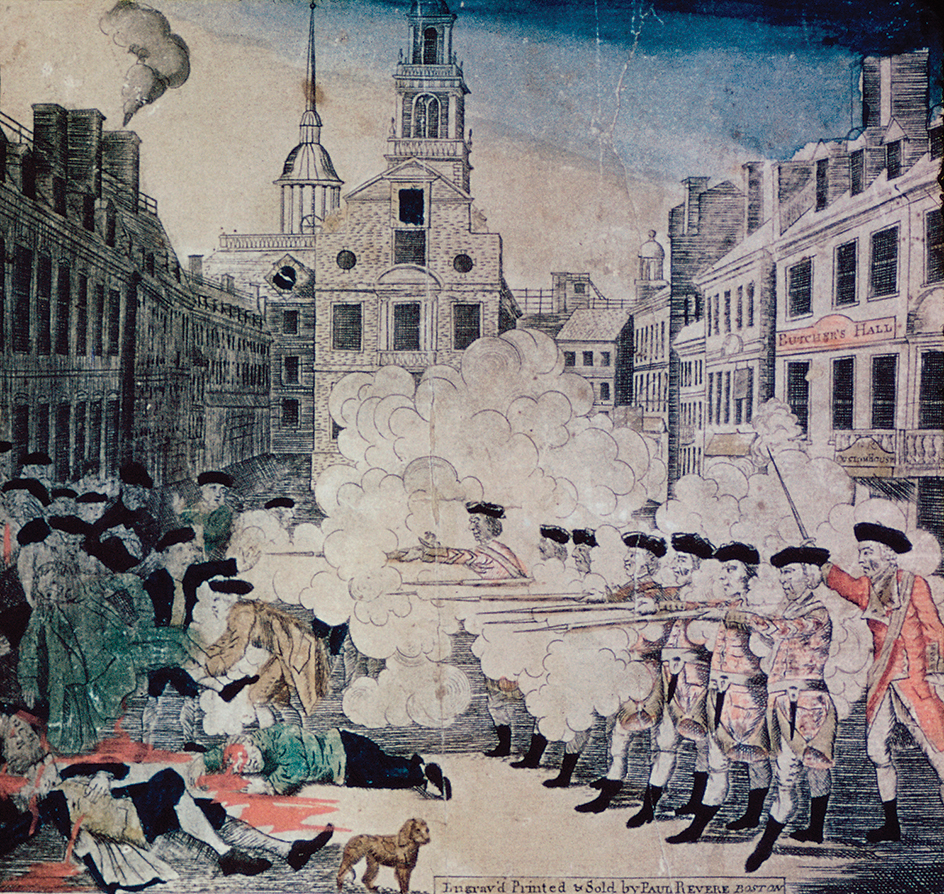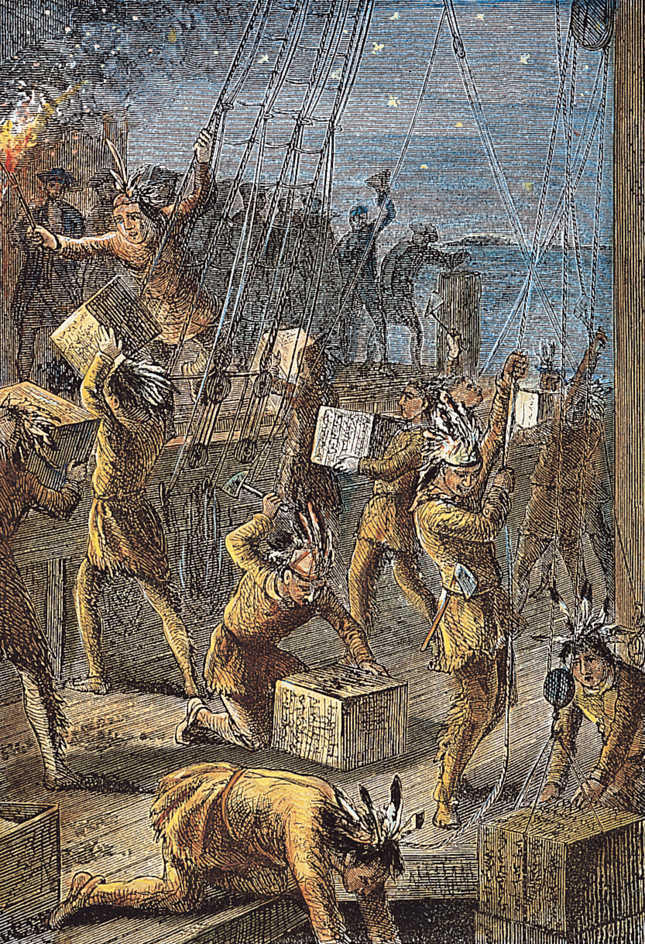Townshend Acts were a series of laws passed by the British Parliament in 1767. The acts taxed lead, paint, paper, and tea imported into the American Colonies. Colonists responded with protests and by boycotting British goods. American resentment of the Townshend Acts and other British laws helped unify the colonies in the years prior to the American Revolution (1775-1783).
Background.
During the decade before the start of the Revolution, American colonial leaders repeatedly challenged the British Parliament’s right to tax the colonies. In 1765, the British Parliament passed the Stamp Act to raise funds to support its standing army in the colonies. Colonial protest groups called the Sons of Liberty demonstrated against the stamp sales. The colonists’ slogan became “No Taxation Without Representation.” Protests in the colonies led Parliament to repeal the Stamp Act in 1766.
Parliament passes the Townshend Acts.
The Stamp Act’s repeal briefly eased tensions between the Americans and the British. But many members of the British government, including Chancellor of the Exchequer Charles Townshend, disliked giving in to the colonies over the Stamp Act. Townshend convinced Parliament that the colonists would find a duty (tax on imported goods) more agreeable than the Stamp Act. Whereas the Stamp Act had taxed the colonists directly, the government would collect duties only from importers. In 1767, Parliament passed the Townshend Acts. One act placed duties on glass, lead, paint, paper, and tea imported into the colonies. Another act set up a customs agency in Boston to collect the duties efficiently.
Protests.
The Townshend Acts led to renewed protests in the colonies. The colonists accepted Britain’s right to regulate their trade. But they argued that the Townshend duties were taxes in disguise. To protest the duties, Americans stopped buying British goods. Protests became especially violent in Boston. In 1768, British officials sent soldiers to police Boston and to protect the city’s customs collectors. In March 1770, soldiers and townspeople clashed in a street fight. During the fight, frightened British soldiers fired into a crowd of rioters. Five men died, and patriots called the incident “the Boston Massacre .” Colonists spread news of the incident to turn public opinion in America against Britain. Soon after the incident, Parliament withdrew all the Townshend duties except the one on tea. It kept the tea duty to demonstrate its right to tax the colonies. 
Further developments.
To avoid paying the Townshend duty on tea, colonial merchants smuggled in tea from the Netherlands. Britain’s East India Company had been the chief source of tea for the colonies. The smuggling hurt the company financially, and it asked Parliament for help. In 1773, Parliament passed the Tea Act , which enabled the East India Company to sell its tea below the price of smuggled tea. Americans vowed not to drink tea, and mobs frightened the agents who tried to sell it. On Dec. 16, 1773, a group of colonists dramatized their opposition in the Boston Tea Party . Dressed as Native Americans, they boarded the East India Company’s ships and threw its tea into Boston Harbor. In 1774, Parliament passed laws to punish the colonists. Britain called these laws the Coercive Acts. Americans called them the Intolerable Acts . Such measures served to unify the colonies against their mother country, and they were among the factors that led to the outbreak of the American Revolution in 1775.

